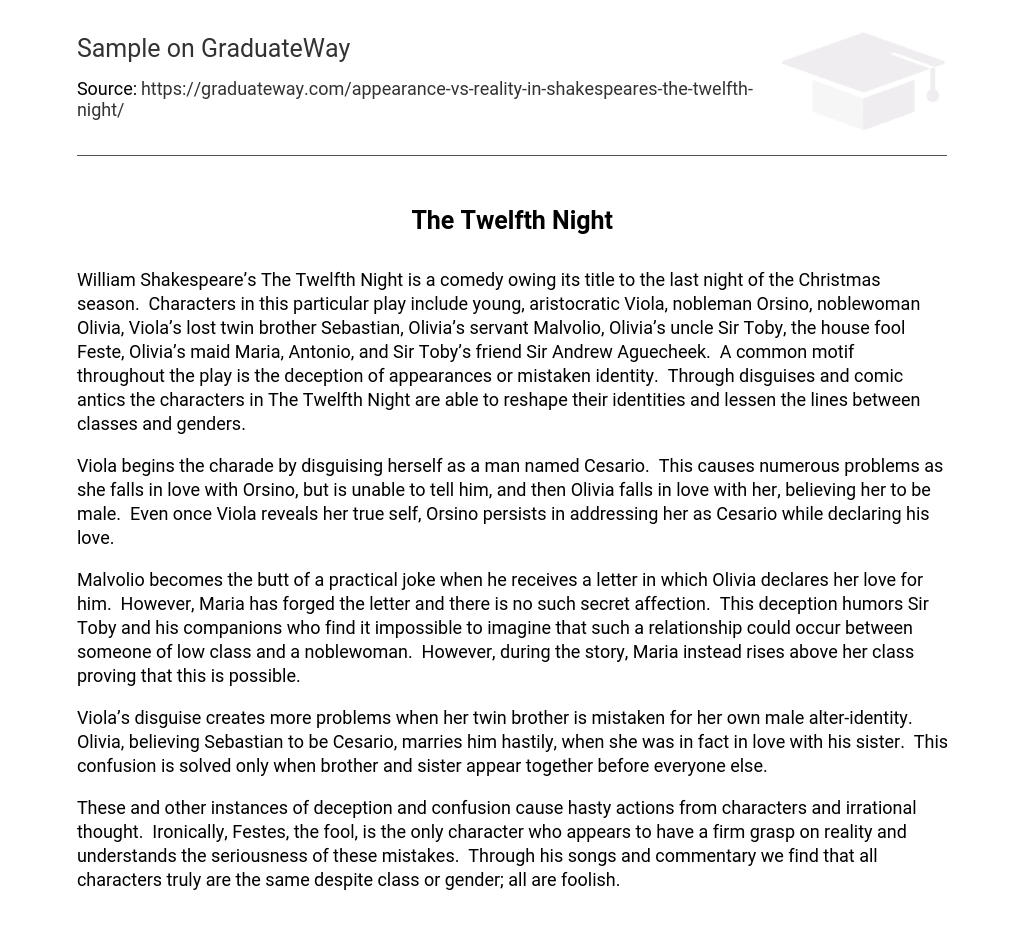William Shakespeare’s The Twelfth Night is a comedy owing its title to the last night of the Christmas season. Characters in this particular play include young, aristocratic Viola, nobleman Orsino, noblewoman Olivia, Viola’s lost twin brother Sebastian, Olivia’s servant Malvolio, Olivia’s uncle Sir Toby, the house fool Feste, Olivia’s maid Maria, Antonio, and Sir Toby’s friend Sir Andrew Aguecheek.
A common motif throughout the play is the deception of appearances or mistaken identity. Through disguises and comic antics the characters in The Twelfth Night are able to reshape their identities and lessen the lines between classes and genders.
Viola begins the charade by disguising herself as a man named Cesario. This causes numerous problems as she falls in love with Orsino, but is unable to tell him, and then Olivia falls in love with her, believing her to be male. Even once Viola reveals her true self, Orsino persists in addressing her as Cesario while declaring his love.
Malvolio becomes the butt of a practical joke when he receives a letter in which Olivia declares her love for him. However, Maria has forged the letter and there is no such secret affection. This deception humors Sir Toby and his companions who find it impossible to imagine that such a relationship could occur between someone of low class and a noblewoman. However, during the story, Maria instead rises above her class proving that this is possible.
Viola’s disguise creates more problems when her twin brother is mistaken for her own male alter-identity. Olivia, believing Sebastian to be Cesario, marries him hastily, when she was in fact in love with his sister. This confusion is solved only when brother and sister appear together before everyone else.
These and other instances of deception and confusion cause hasty actions from characters and irrational thought. Ironically, Festes, the fool, is the only character who appears to have a firm grasp on reality and understands the seriousness of these mistakes. Through his songs and commentary we find that all characters truly are the same despite class or gender; all are foolish.





